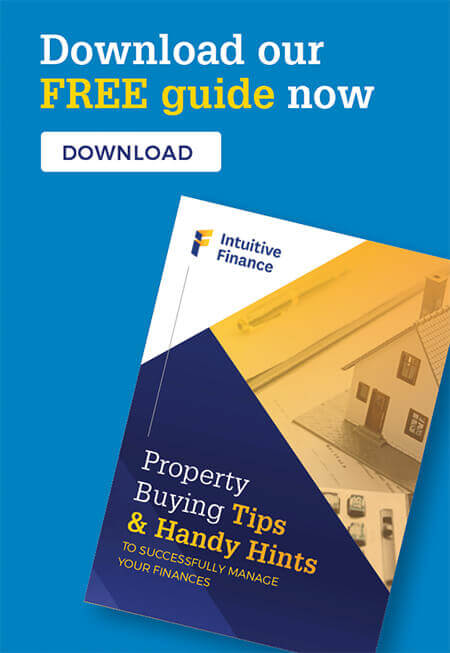If the past few years will be remembered for anything, it may be that many Australians felt like mortgage prisoners.
What do I mean by such a seemingly contrary statement?
Well, the confluence of changes in the lending landscape has resulted in many borrowers being unable to refinance.
New rules trapping the unwary
There were a number of possible reasons why they were caught in the money trap, including no longer being eligible to refinance because of the APRA-enforced restrictions on investor lending because of such things are their credit card limits being too high or they actually didn’t know their true living costs.

Sometimes their personal circumstances had changed which stymied their refinance approval chances or perhaps the value of their property had decreased.
What this meant in reality was they were often stuck with a high interest rate that they were unable to change, or they had to start paying principal and interest repayments on investment loans because of their inability to secure an interest-only loan product.
All hope was not lost, of course, because there are always strategies to tip the odds back in your favour.
Here are six of them.
1. Create a budget for your living expenses
The one big change over recent times has been the deeper dive into borrower’s living expenses, which has shown what those us in the profession have realised for a while – that many people don’t know how much they spend every month.
By creating a budget for your living expenses, you can not only get on top of your spending, you may also be able to trap any surplus money to use towards paying down bad debt.
2. Reduce your card limits and eliminate personal debt
Many people don’t understand that lenders don’t really care whether your credit card balance is zero.
What they care about is how high your card limits are because you potentially could spend up to that amount.

Say, you have two credit cards, one with a limit of $5,000 and one with $15,000 but both with low balances.
Lenders will use that $20,000 total limit when assessing your refinance application not the fact that you may only have $1,000 owing across both cards.
So, a sound strategy is to reduce those limits down as well as to concentrate on eliminating personal debt, which will both improve your refinance chances.
3. Seek professional advice – not your bank
If the royal commission has shown us anything it’s that some lenders have been doing the wrong things by some of their banking clients.
Of course, on the whole, they were isolated instances of bad behaviour, however, the inquiry also showed that choice was not something that was a big part of the “advice” advisers would often provide customers.

At the end of the day, bank staff are employed by the bank to sell its services and products.
Professionals, like mortgage brokers for example, don’t have any allegiances to anyone and always seek the very best outcomes for their clients.
If you’re struggling to refinance, then it’s wise to seek independent advice on the options available to you across the marketplace rather than via just one single lender.
4. Conduct an interest rate review
Another strategy to consider is to conduct an interest rate review to determine whether there are better deals available for you out there.
While the major lenders have tightened their purse strings, non-bank lenders have not, which means that there are options to refinance.
A professional mortgage broker will be able to review your loan interest rates and recommend what the best next step will be.
5. What is your timeframe for personal circumstances? Investing journey? Wealth creation?
I know it’s not what most people want to hear, but sometimes the best thing to do is nothing.

The goal-posts have changed over recent years, but I don’t believe it will be permanent.
So, if you have to survive on Campbells soup and dry crackers for three months in an attempt to refinance, perhaps you should just hold your ground for a time.
The thing is, property markets move slowly, and it’s unlikely that anyone will miss out on much if they have to wait on the sidelines for a few months or even a year.
Sometimes, the best plan of attack is to work diligently in the background to improve your financial position, such as paying off bad debt, so that you can present the best application at the optimal time for your own personal circumstances.
6. Consider selling underperforming assets
Another strategy to consider is selling underperforming assets, which again is not an overly popular point of view.

However, an underperforming asset may well stay that way for the long-term because it was bought in an area soaked with supply, or it is so heavily negative cash flow that it keeps you awake at night.
A professional can help you assess whether an asset is likely to improve your financial future or drag you down to a point where you are forced to sell because you’ve run out of cash.
Of course, no one wants to be in that position.
At the end of the day, lending rules and regulations are moveable feasts.
The savviest investors and homebuyers work with professionals to ensure they understand the new processes so they can get their finances in tip-top shape.
That way, they can make educated decisions about whether refinancing at a specific point in time is a want or a need.
- Timing the Market vs. Time in the Market - July 15, 2024
- On Market vs. Off Market Listings: What’s The Difference - June 17, 2024
- Impact of Victoria’s Land Tax Hike on Property Investors - June 3, 2024








